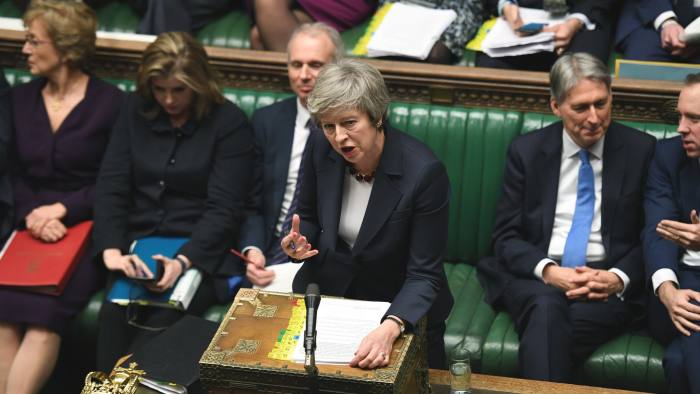May scrambles before key vote
January 11, 2019 | Expert Insights

After a disastrous Parliament vote on the proposed Brexit Plan, PM Theresa May is looking at a last-ditch effort to prevent the messy Irish Border stop-gap plan from passing in case of a no-deal Brexit.
Background
On June 23rd, 2016, Britain narrowly voted to leave the European Union, stunning Europe and the world in general. The EU employs a set of policies for its 28-member states that aim to ensure the free movement of people, goods and trade among other services. Britain is deeply intertwined with the workings of the EU especially with regard to trade.
PM Theresa May’s leadership in the negotiations has been heavily criticised. She has been unable to form a consensus within the Parliament, or even her own party, for the course of Brexit. Her “directionless” leadership has not convinced most of her peers in Westminster and she was challenged by a no-confidence motion in early December 2018, which she narrowly won.
Despite her best efforts, the British parliament is not accepting the proposed Brexit agreement. Irrespective of whether they arrive on a deal or not, the UK is officially set to leave in March 2019.
Analysis
Theresa May is to offer MPs a veto over the introduction of the so-called Northern Ireland backstop in a last-ditch attempt to limit the scale of an expected heavy House of Commons defeat for her Brexit deal next week. The move came after MPs inflicted a second defeat on the prime minister within 24 hours, this time requiring Mrs. May to produce a Brexit “Plan B” within a matter of days if — as expected — she loses next week’s vote.
Following furious exchanges at Westminster, MPs voted to accelerate the Brexit timetable and limit Mrs. May’s ability to run down the clock before March 29, the day Britain is due to leave the EU. The Commons voted 308 to 297 in favour of an amendment from the Europhile former attorney-general Dominic Grieve forcing Mrs. May to present an alternative Brexit plan within three sitting days — January 21.
The previous day, MPs had voted to limit the government’s tax-raising powers in the event of a “no-deal” Brexit. But Eurosceptic Tory MPs were furious that Wednesday’s vote was even allowed by Commons speaker John Bercow, who they view as an opponent of Brexit.
With parliament flexing its muscles over an enfeebled prime minister, and Mr. Bercow trying to give MPs more sway over Brexit, Mrs. May made a desperate new attempt to win support for her deal. Downing Street confirmed that the government would next week support an amendment by Tory grandees giving MPs control over the introduction of the Irish backstop, which aims to avoid a hard border through a “temporary” UK/EU customs union.
The amendment would require MPs to approve “the commencement of powers implementing the Northern Ireland backstop” or the extension of the transition period, which the EU has agreed could run until December 2022. It would also require the government to conclude talks on a future trade deal, or find alternative arrangements to avoid a hard border, within one year of the backstop coming into effect.
Although the move appears inflammatory, EU diplomats have indicated they could tolerate the move, because it was intended for domestic consumption and would not change Britain’s international treaty obligations.
Mrs. May’s allies admitted the move itself would be unlikely to avert a defeat in next week’s vote but should be seen as part of a wider package. “We continue to be bound by our international obligations,” Downing Street said.
Counterpoint
The prime minister’s aides argued that if MPs refused to accept the backstop, it would create an unstable political environment and both sides would have no choice but to explore alternative ways to maintain a soft border.
The prime minister is planning to make a final appeal to the EU for “political and legal” guarantees that the backstop is temporary, after her expected defeat next Tuesday and before the second vote on her revised deal in late January.
Assessment
Our assessment is that the EU is not willing to renegotiate on the proposed exit deal as EU countries stand to gain from it more than the UK. We believe that PM May is now fighting not only for a fair Brexit deal but also for her own political survival. We also feel that the rising disagreements within the Conservative Party may lead to a new Brexit Referendum, an idea which is supported by most members of the House of Commons.








Comments